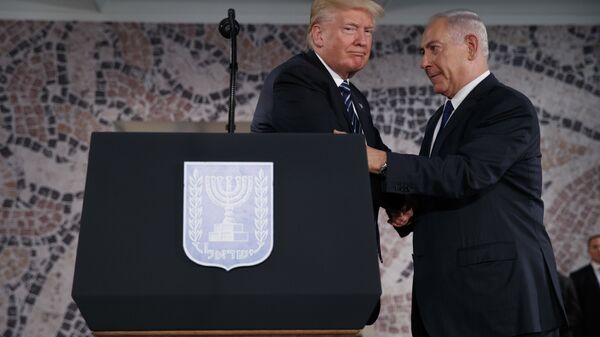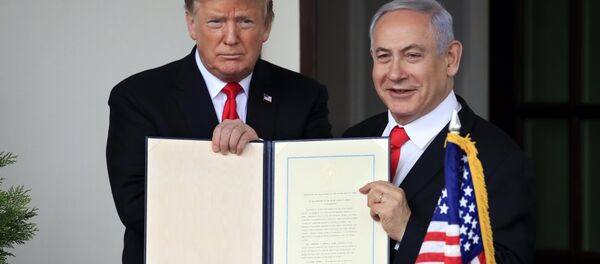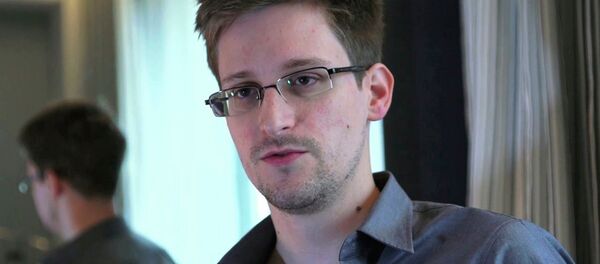Last week, Netanyahu promised that his party would win the snap elections that would be held for the second time in two months after the dissolution of parliament.
The previous elections were held in Israel on 9 April, but Israeli lawmakers voted to dissolve parliament thereby opening the way for a snap vote.
Netanyahu explained that he was unable to form a government due to the unwillingness of former Defence Minister Avigdor Lieberman, heading the secular Yisrael Beytenu party, to make concessions to religious parties which Netanyahu planned to include in the coalition.
The news comes amid media reports about the upcoming presentation of the so-called Palestinian-Israeli peace plan which, according to White House officials, will be partially rolled out on 25-25 June. Trump has said that new Israeli elections could curb the chances of success for the peace plan.
Sputnik discussed the issue with Eyal Zisser, Vice Rector of Tel Aviv University, Professor for Middle Eastern Studies.
Sputnik: President Trump expressed his opinion about the repeat of Israeli elections, saying “That’s ridiculous. So we’re not happy about that”, and that they were “all messed up”. How significant is this comment from the US President?
Eyal Zisser: First of all, many Israelis find it ridiculous that we will have new elections in a matter of several months from the previous elections; but that’s politics.
President Trump, I think, is known for his personal friendship with Prime Minister Netanyahu, he has supported him; and, of course, he is upset that Netanyahu wasn’t able to establish a new government.
This is why maybe he didn’t understand why it was so difficult for Netanyahu who won the election; but when I say he won the election, it’s not that he got an overall majority; he was the bigger party, but still, very small relatively, so he needed the support of others. But that’s also Trump, you know, who has many things to say about European politicians, British politicians; just now we spoke about Theresa May, the British Prime Minister, about others.
That’s Trump, I think; but he needs a strong Israeli government to move ahead his plans in regard to the [elites], that’s why he wasn’t happy about it.
Sputnik: In your view, can this have any impact on US-Israeli relations?
I think he is also very committed to Israel. The question is that he wanted his friend to form a government, this hasn’t worked out; but I think that there is no question about Israel as a state, as a nation, but the Prime Minister.
Sputnik: “Mike Pompeo recently casted doubt on the peace plan”. What is your prognosis about Trump’s peace plan? How likely is it that the plan will be implemented?
Eyal Zisser: We have our doubts because the conflict between Israel and Palestine is a long historical conflict of more than a hundred years and you cannot solve it in a matter of several weeks. And also it’s not about money or it’s not a deal that you offer to businessmen to settle their conflict; it’s much deeper, it’s emotional, historical, it has to do with ideologies and beliefs.
And I think that the Americans are quite naïve and they think that they will offer some money here and there, or they will put some pressure on eventually the two businessmen; but these are not two businessmen, these are proud nations.
So, I doubt it very much whether they will be able to move ahead the peace process; I mean, Israel and the Palestinians do need the United States, but to a certain extent. Time is running against Trump in a matter of several months as we’ll enter the election here in the United States, I don’t think it will work out.
Eyal Zisser: You know, it has been rejected by the Palestinians because it was supposed to be too pro-Israeli, but I think any in the right wing doesn’t like it, and I don’t think Netanyahu cannot oppose Trump.
So, he will let the Palestinians refuse first. But it comes to that, he will have to choose between Trump – and accepting the deal means crisis within the government, and parties that are right to Likud will oppose it – he will have to choose between the survival of his government and a possible crisis in his relations with Trump.
And it will be a difficult dilemma for him.
Views and opinions expressed in this article are those of Eyal Zisser and do not necessarily reflect those of Sputnik.




